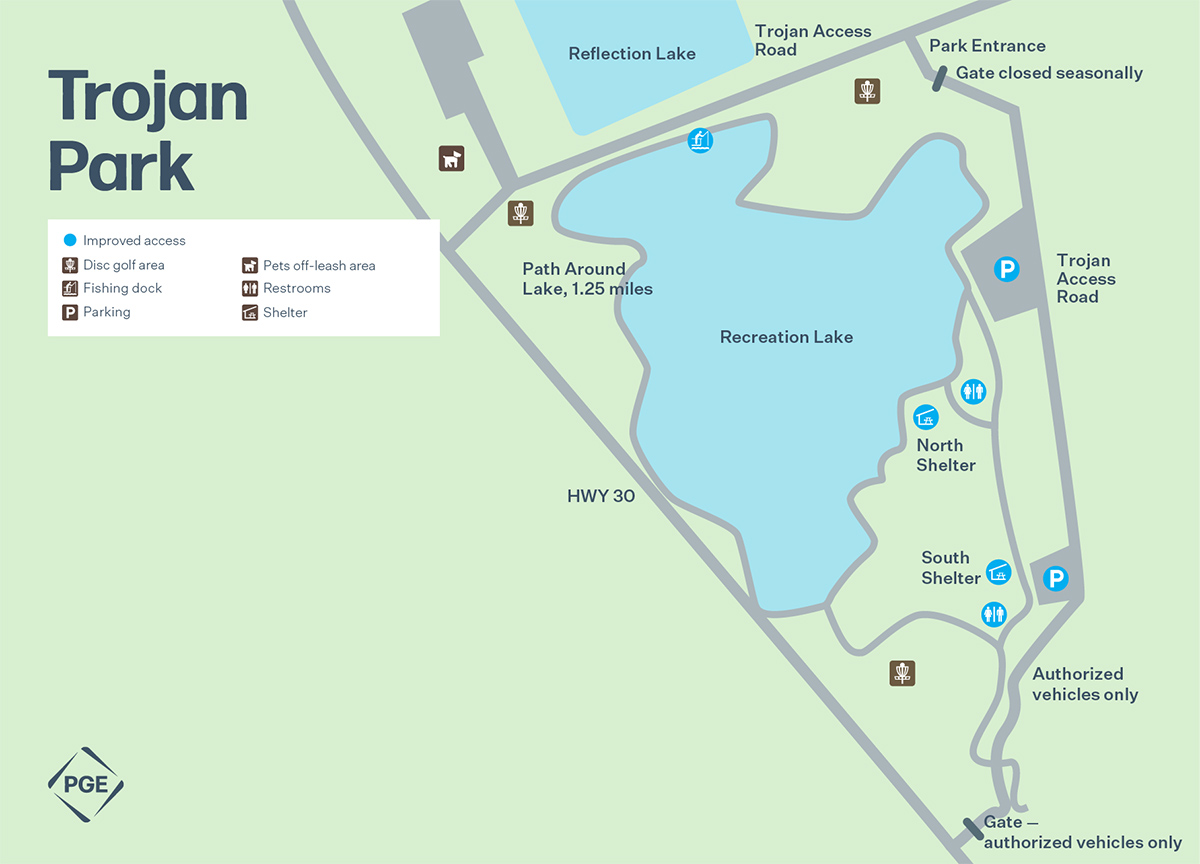

Trojan Park
Picnic and play near the Columbia River.
Visiting Trojan Park
Trojan Park is a delightful day-use park with facilities for picnicking, hiking, biking, fishing, paddling and disc golf . The 75-acre park includes a stocked lake open to non-motorized boats, multi-use trails and a large sports field.
The park, near the site of the former Trojan Nuclear Power Plant, has individual picnic tables as well as facilities for groups: two shelters, each with two reservable sections. Electric stoves, sinks, water and electrical outlets are provided.
Trojan Park's picnic areas, parking and restrooms are open seasonally:
Summer (Memorial Day weekend through Labor Day): Open Thursday through Monday
Remainder of September: open Friday through Sunday only.
The rest of the year, the picnic areas and restrooms are closed, but the disc golf course, ponds and trails are open year-round with limited parking.
Location information
Address: 71760 Columbia River Highway Rainier, OR 97048
Directions: Follow Highway 30 west from Portland for 42 miles. Follow signs for Trojan Park.
(Please note that the street address may not take you to the park when using a mapping app.)
Photo gallery

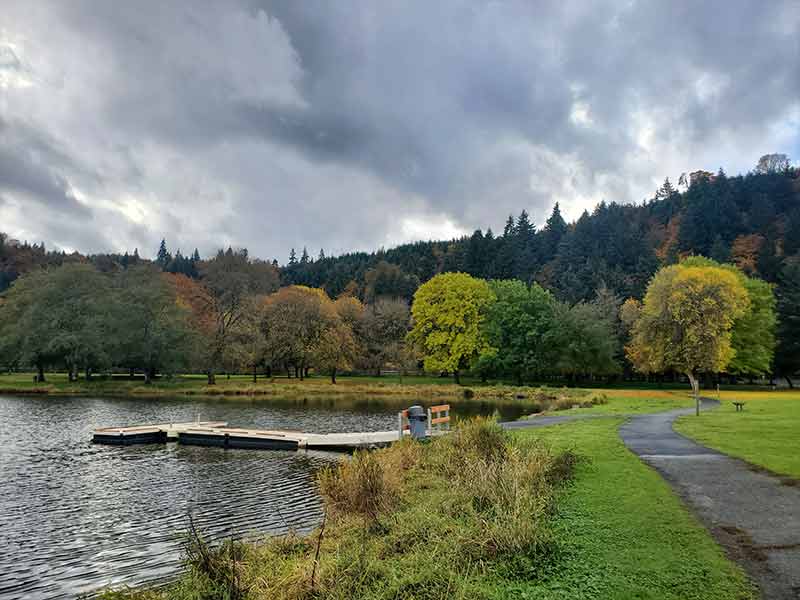

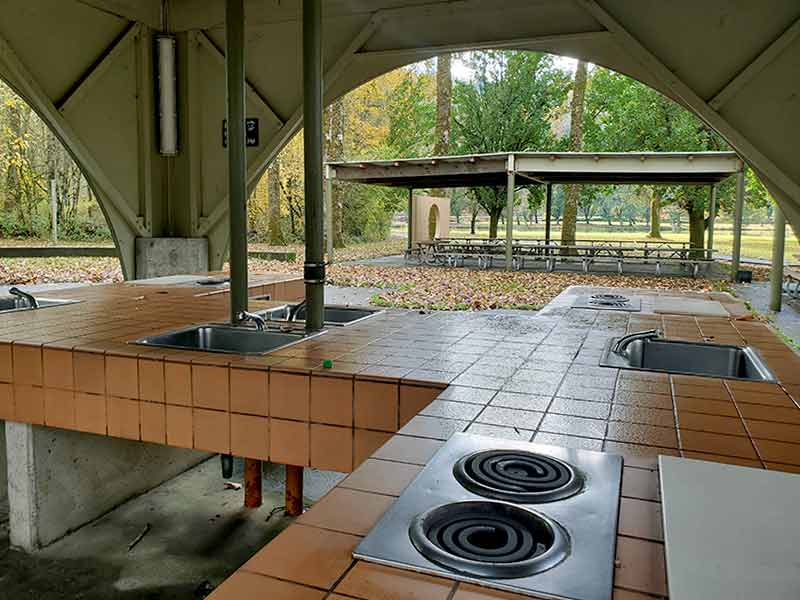

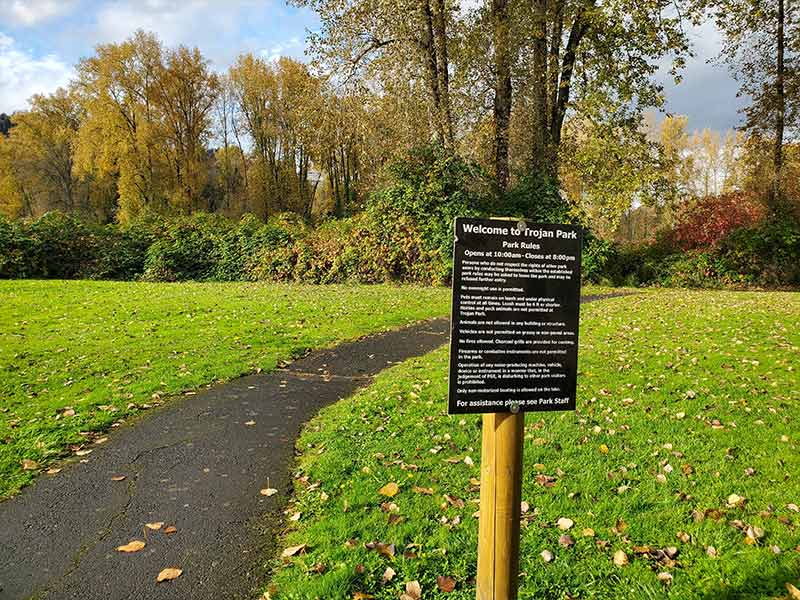

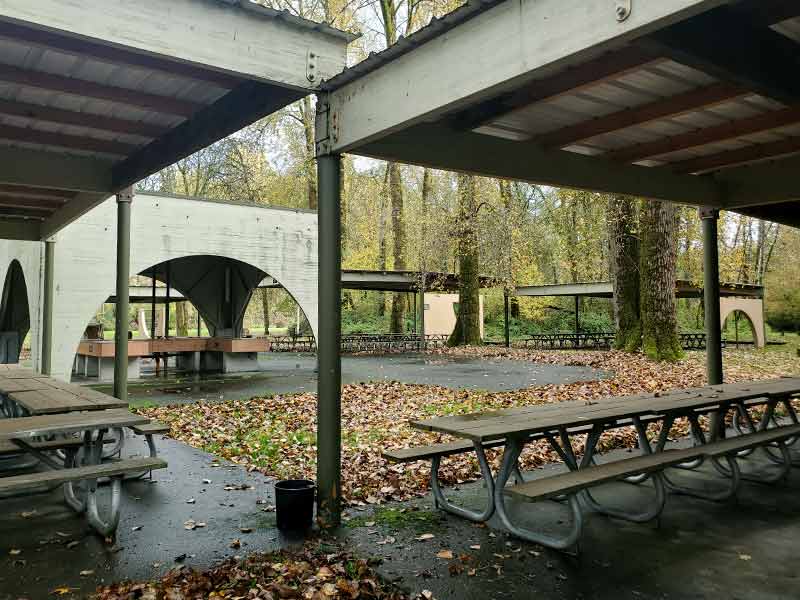

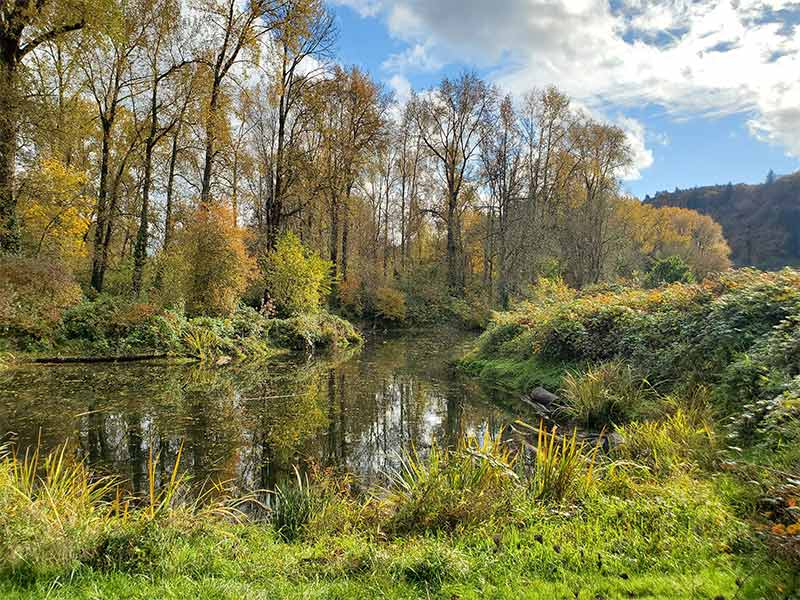
1 / 5

Make a reservation
If you want to reserve a picnic shelter or part of the park for a private group, there is a reservation fee. Phone reservations (503-464-8515) and email requests for the upcoming season will be accepted beginning the first business day in March at 8 a.m. Please request a reservation using the day use area permit application.

Thinking ahead
We’re committed to keeping our parks safe, clean, sustainable, and welcoming – but we need your help.
Know before you go
Make a plan: Check for road closures, construction, fire bans, swimming restrictions or other conditions that may hamper your visit.
…and a plan B: Make a backup plan in case of crowds. Try visiting on weekdays or at off-peak times to beat the masses!
EV adventuring? While our parks do not have charging stations (yet!), check here for nearby locations that do.
During your visit
Stop campfires from becoming wildfires! Keep campfires small, make sure your tent and anything that can burn is a safe distance from your fire, keep water nearby and never leave a fire unattended.
Keep wildlife wild: Toss all trash and food scraps in designated bins. Stash food, coolers, and scented items in your vehicle or a secure, hard-sided container. And remember: feeding wildlife is a no-go.
Leave no trace: Help us protect these natural areas by staying on-trail, packing out your trash, and admiring wildlife from a distance.
More information and resources
For more information, use our contact form or call the PGE Parks Information Line at 503-464-8515.
CUSTOMER SERVICE
7am-7pm, Monday – Friday